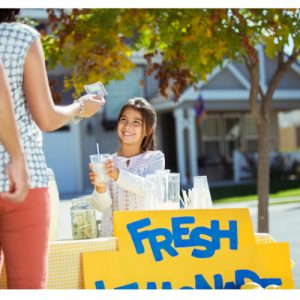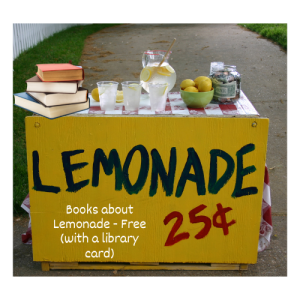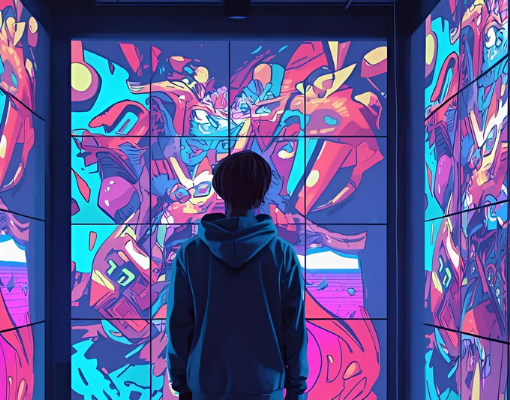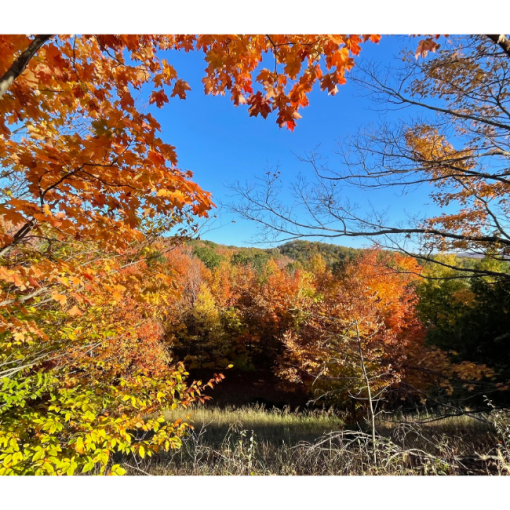“Communities are human systems given form by conversations that build relatedness” (Stephens, 2025)
This statement, from the Module 5 readings, really caught my attention. On my initial read, it felt like a nice, cozy definition of how communities happen and function. But after some time to ponder it, over the course of a few work days, I think I would amend it.
“Communities are human system given form by chosen conversations that build relatedness”
It is impossible to build relatedness with someone who simply chooses not to communicate with you. This bug in the system can be exploited, keeping groups of people from connecting and learning more information that may change their outlook or make them more empathetic to others.
In my opinion, this is closely tied to the overall concept of the common good. In my community, thankfully, we still have a solid majority of people who believe libraries are important to community and the common good. But, we also have a portion of the community who believe that the risk of coming across something antithetical to their belief system outweighs any benefits that a library visit may offer them. In order to make the library attractive to this group we would have to renounce our “everyone is welcome” library belief system. This is a problem far beyond libraries, of course, as people who live together geographically must be able to come together and make decisions in business (Frémeaux, 2020) and otherwise. But – libraries are our focus here.
How then, as a public library, do we continue to try building linkages and fostering conversations with the disaffected group? Let’s do a thought experiment in the context of a lemonade stand.

What do people find so attractive lemonade stands? It’s not the product, one can easily find lemonade for sale in many locations, safely bottled and sealed. But we know, from observation, that people will stand in line to purchase a cup of lemonade made under uncertain circumstances served in a manner that is just asking for a bug to get into it.
What they are buying is something that activates their ideals – rewarding a young person for taking the initiative, learning business skills, and putting themselves out there. Is there anything I can learn from this for the disaffected group, who, while very committed to their belief system, may still share some ideals with others who live around them?

Can I find an outreach method to begin some type of conversation?
The best answer I’ve been able to develop so far is a free book fair, safely in the confines of their chosen community/setting. In this way I’m hoping to make some connections between people and librarians, through the free books for all ages. By going to them, I’m minimizing their risk. By starting a conversation through this very basic, old school approach that touches on some long-held memories, it may offer the chance to continue a conversation in the future. It does, however, hinge on whether this group finds books to be of value. I don’t know the answer to the questions I’ve posed here, but I do want to try the free book fair and see what I can learn!
#hyperlib
References
Frémeaux, S. (2020). A Common Good Perspective on Diversity. Business Ethics Quarterly, 30(2), 200–228. https://doi.org/10.1017/beq.2019.37
Stephens, Hyperlinked Communities, (2025). http://287.hyperlib.sjsu.edu/module-5-hyperlinked-communities/





6 thoughts on “Reflection: Hyperlinked Communities”
Hi, Heather!
You bring up an interesting point that libraries are tied to people’s thoughts and feelings about the common good. I think the American Ideal of Individualism has done some harm in this area. I have seen and heard people reference this system thought in regards to community services, such as the library. I like your idea of a free book fair. I also wonder if engaging in some community outreach would help. We have made it a point to go to most of my city’s summer festivals, and we get a lot of community feedback about how they love the library. This is a great opportunity to advocate on the library’s behalf by sharing available programs and resources.
-Jenn
Hi Jenn! We do a ton of community outreach and we do have substantial community support – thank goodness! Unfortunately there are segments of our community who are quite “anti-library” (for a variety of reasons). The free book fairs are my idea to reach these more far-flung pockets, because I don’t believe there is any way they will come to us. Just today I had some feedback from a librarian, who called to offer a location a bookmobile visit, and was told that they do not take part in the library system because they do not want to encounter any unhoused members of our community in any way. They do not “feel welcome” precisely because we are welcoming to all. Things are actually getting worse in this regard, as you might imagine. It’s probably my obstinate nature but I spend a lot of time thinking about how to win them over!
Hi Heather,
The idea of a free book fair for all ages is something that libraries should consider doing because it will bring the community together while advertising library services. In recent years, I have witnessed libraries distributing free books for kids to bring them into the library but I would also like to see the same being done for teens, tweens, and adult age groups. Although the books will be more expensive, I think that encouraging those groups to come into the library is just as important as attracting parents and kids into the library. I understand the logic behind investing more money into events for children, which is the hope that coming to the library often will encourage them to come on their own when they are older. However, it is never too late to bring in older age groups into the library.
Thank you Camilla! I’m looking forward to giving it a try. 🙂
@hharrisbrady I appreciate your idea about organizing free book fairs. It seems like this initiative is aimed at attracting a specific group or community to create a welcoming environment and educate them about the library’s offerings. By doing so, they may eventually become part of the broader community and engage in conversations. .
Yes, I’m really trying to get to segments of the community who don’t come in to the library. I’m hopeful – two of the three areas have offered me free spaces to have the book fair!